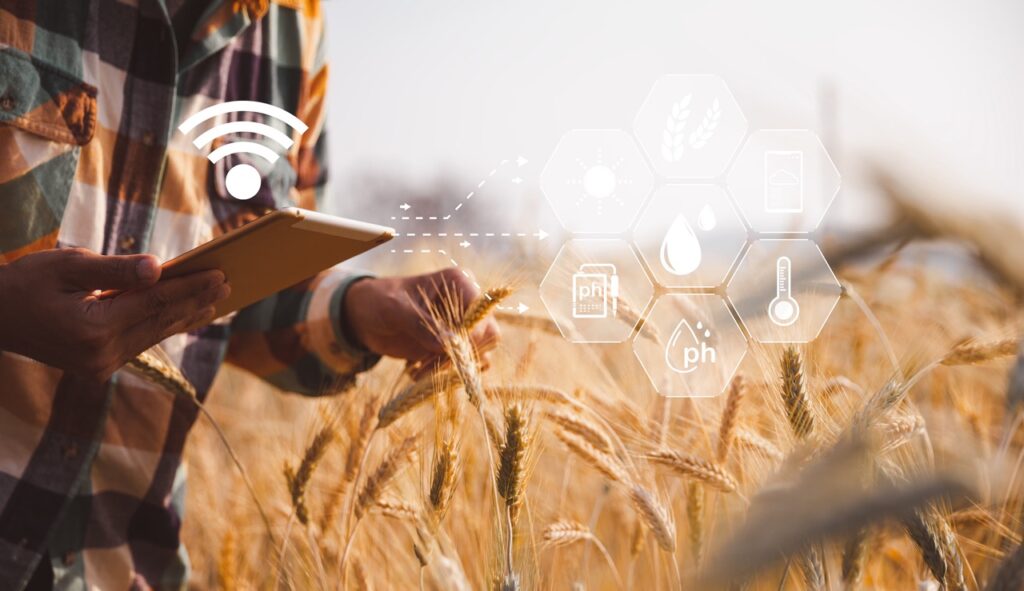
From the inaugural Olympics in 776 B.C. until today, one thing has remained the same: athletes bring gritty, physical prowess to their chosen sport – and the human desire for excellence.
Of course, other things like culture, fashion, and technology have changed dramatically (thankfully, since athletes in the first Olympics competed naked!). In the Olympic Games Paris 2024, one game changer is the role of artificial intelligence (AI). Remote industrial operators looking to scale business value and improve decision-making through edge data, take note: the Olympics, watched by 3 billion people from around the world, is deploying AI to improve future performance of their event.
According to an article published by the International Olympic Committee (IOC), AI and digital twinning are being used as an efficiency booster for future Olympic games – from energy consumption to identifying the best places to place cameras and power sources.
“The expectation for a lot of people is ‘I’ll just AI it.’ It’s like a magic wand.”
One thing AI demands is historical data. This is why we are so passionate about industrial operators owning their data. Without data ownership, it’s a false start when using large language models to train and leverage AI algorithms.
In the article entitled “AI and Tech Innovations at Paris 2024: A Game Changer in Sport,” Ilario Corna, the IOC’s chief technology officer said, “We started gathering various operational data as far back as 2020, to look at how we can make the management of the Olympic Games more efficient.”
Ryan Treece, global business development manager – data platform & AI solutions at FreeWave, has seen AI evolve over the past decade. He says companies that don’t give customers rights to their data are putting them at a disadvantage. “The thing is that those who own their data will eventually win because they can use it while others will start from zero.” Catching up over time, he points out, becomes increasingly difficult as competitors advance. Companies that secure data ownership today are the ones who will lead tomorrow or, in Olympic terms, will earn gold in the AI race.
That’s one reason FreeWave drafted the IIoT Bill of Rights (data governance is amendment one) – as a way for remote industrial operators to leverage technology for future growth and opportunities.
Importance of Data Ownership in the Age of AI
Owning your data is not just a competitive advantage; it’s a necessity.
“There are a lot of AI solution providers,” Ryan explains. “The expectation for a lot of people is ‘I’ll just AI it.’ It’s like a magic wand. Look into the future, though, and ask: What do vendors like? Reliance on their systems.”
Ryan says there is no one “mega-solution” out there to solve every problem, but, if there’s one thing he hopes industrial operators know it’s that data ownership means leveraging your data for operational and business performance. “We’re targeting predictive maintenance to prevent machines from going down, reduce fuel waste just to see if a machine is running dozens or even hundreds of miles away, and increase efficiencies so people are not wasting time and energy resources. Data creates long-time success.”
Just as the IOC is using AI to create more efficiency in the future, he says understanding data over time enables industrial operators to continuously improve.
While still under development, FreeWave is building its AI solutions around domain expertise. Through its FreeWave® Insights™ data platform, it’s connecting decision-makers with data at the edge via sensor technology, pulling in SCADA system data as well. He cites vibration tension sensors as an example. If a rotating asset like a bearing, for example, wobbles, an alert is sent to a single pane of glass – a dashboard connected to the Insights data platform. From there, a technician can add the issue to his planning schedule.
Ryan shares the story of when he lived in Michigan. An automotive manufacturer that made panels, a “tier one supplier” in the industry, didn’t have the budget to climate control the entire building. In hot, humid weather, the adhesive failed. Since variables change over time, he says, IIoT solved the problem.
“Vibration and temperature data from sensors showed the numbers going up and down. Historical data tells us to change the adhesive or turn up the AC or ramp up the climate control when needed. The manufacturer and its solution providers knew what knobs to turn by identifying trends in a specific period.” That’s why, he says, data ownership is so important. Without data, AI becomes impossible.
Solve – and Simplify – Operational Problems
“We’re working on solutions that reduce the tech stack and address specific problems like predictive maintenance and trends analysis of sensor data,” said Ryan. “When I’m thinking data, I’m thinking of a huge Excel spreadsheet.”
Real-time monitoring of temperature, vibration, or water levels, for example, are important variables for industrial leaders: oil and gas producers with fields in remote or rural areas, large-scale agricultural operations with water pump stations dotting thousands of acres, or public and municipal providers with aging infrastructure in need of robust, remote network strength. These are places, Ryan says, that pose a risk for people to perform daily or weekly monitoring.
Ryan points to his hometown of Austin, Texas, where the energy grid is unreliable, especially during hurricane season or super hot summer months. The panels on the grid can overheat. Alerts notify engineers to replace components before problems start. Rather than react, alerts and predictive maintenance reduce downtime. Another example he gives is California where water is a precious commodity. Knowing humidity levels, soil moisture, and water consumption allows agriculturalists to invest minimal resources for better outcomes. AI, he says, optimizes sensor data locally, at the edge, by providing analyses crucial to decision-makers.
Failure-Proofing Connectivity Keeps Data in Play
Oftentimes, industrial operators don’t have ready access to cellular or Wi-Fi, however, satellite is an optimal solution for areas with questionable coverage and those wanting a strong back-up connection. Pairing satellite with the FreeWave cloud-based Insights platform-as-a-service helps industrial operators keep their data flowing. FreeWave, as a Wholesale Partner in Viasat’s ELEVATE program and a Global Authorized Reseller of ORBCOMM® satellite-connected devices, combines this connectivity answer with their 30-plus years of edge computing expertise.
“We’re combining satellite gateway expertise, industrial sensor technology, and cloud computing with algorithms to detect those problems,” said Ryan. He explains that FreeWave’s data platform enables remote companies to gather sensor data, make sense of that data for local intelligence through a gateway, and send the insight through the cloud to a single pane of glass, where that data can be stored or acted on depending on the need.
Own Your Data, Own Your AI Future
Which brings us back to data ownership. Thinking of data only in solving today’s problem doesn’t stand up to a long-term strategy. Those who don’t own where or how their data is managed might be left behind.
“The data is your IP,” said Ryan. “When you give your data to a solution provider, you give the solution provider a better solution, but forgo the opportunity to improve your performance using AI down the road.” Ryan adds, “AI is just a fancy math problem. If there’s no data to input, you can’t build your IP.”
Spyridon Louis, a Greek water carrier, won the first-ever marathon (roughly 25 miles) in 1896, running 7-minute miles. In the Paris Olympic trials in February, Clayton Young and Conner Mantz, both from the U.S., finished at about 4 minutes, 56 seconds per mile. Just as athletes leverage insight and experience to outperform predecessors, remote industry operators can use their data to improve response, results, productivity, and stay competitive.
After all, who doesn’t want to be the one standing on the highest step of the podium? In today’s fast-paced AI-driven world, data is the new gold.

Ryan is the Global Business Development Manager – Data Platforms & AI Solutions at FreeWave. He believes that IoT isn't just about technology - it's about making a real impact. In the industrial space, he's driven by the goal of helping manufacturers eliminate downtime, reduce waste, and enhance efficiency. By leveraging IoT, he believes we can create workplaces where productivity thrives and job satisfaction soars.



